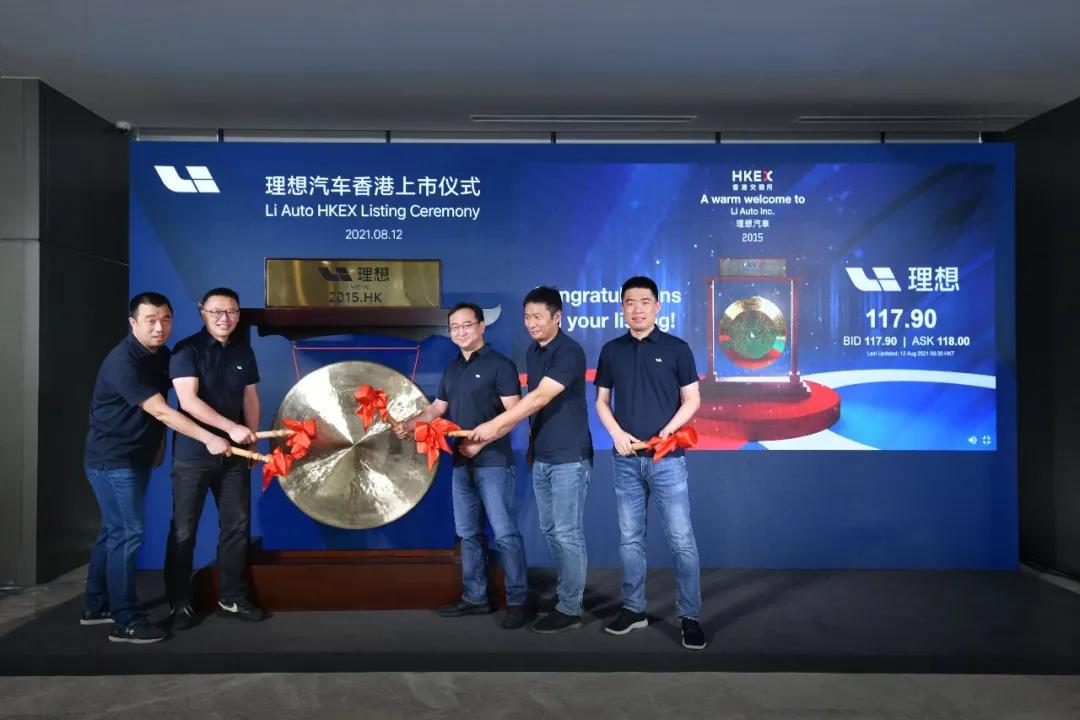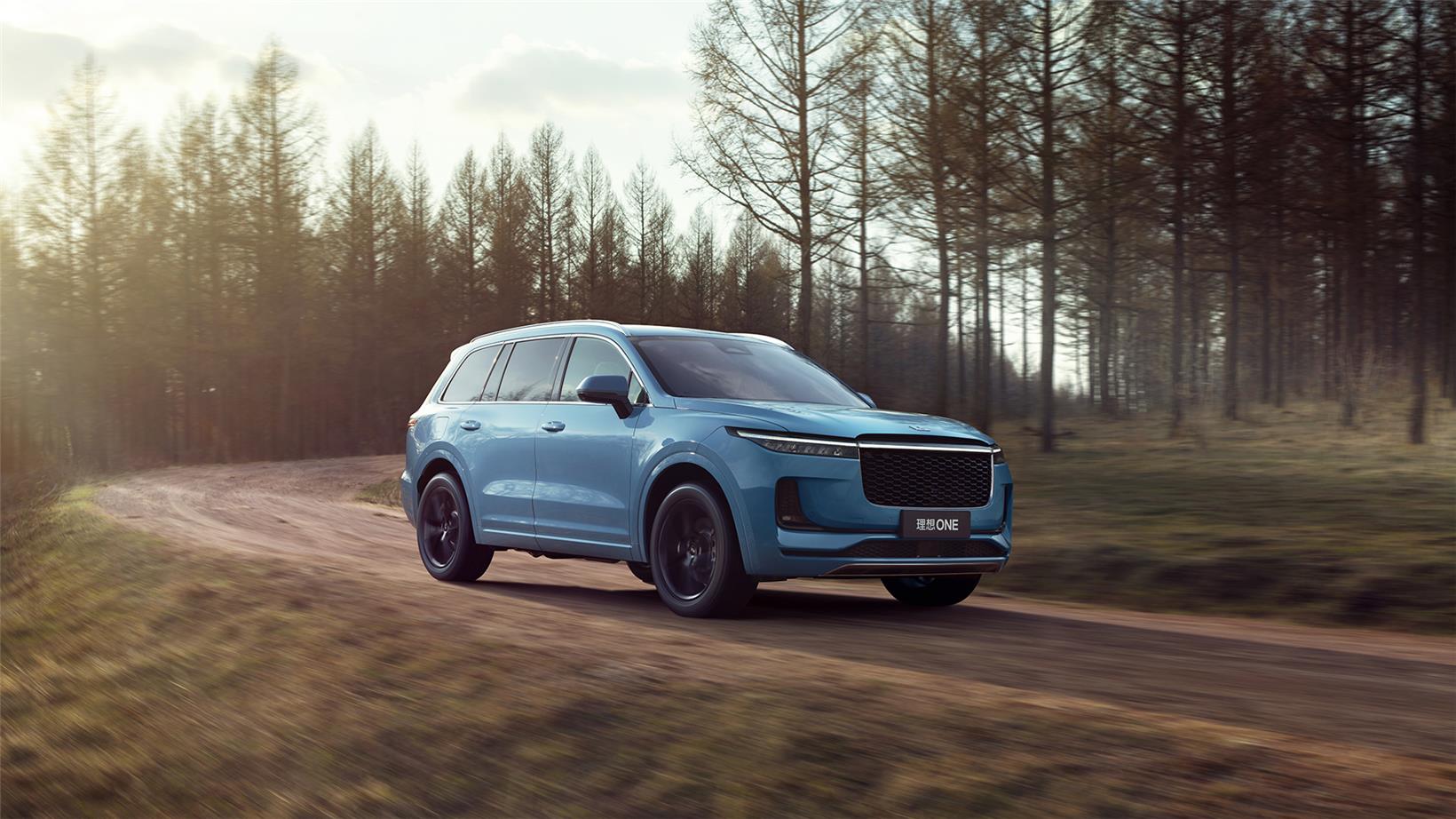Li Auto to build BEVs in Beijing plant
Beijing (Gasgoo)- Li Auto’s shares started trading on Hong Kong Stock Exchange on Thursday with an IPO price of HK$118 per share. The share ended the day with a closing price of HK$117, down 0.85% from the IPO price.

Photo credit: Li Auto
The automaker started the plan to list in Hong Kong right after its IPO in New York in July, 2020. Hong Kong is an international capital market with diversified investors, and there Li Auto can attract more investors from the Asia-pacific region, Shen Yanan, the company’s co-founder and president said in an interview. Besides, listing in Hong Kong and New York can help to overcome some uncertainties.
Because Li Auto has been a listed company in the U.S. for only one year, it adopts dual primary listing method in Hong Kong, rather than secondary listing. Even though dual listing seems tougher for companies need to meet different requirements of two exchanges, it is easier for companies to comply with regulations for mainland listing. Li Auto doesn’t rule out the possibility to trade shares in China’s mainland, Shen added.
The proceeds Li Auto got from the Hong Kong listing will be used to fund its future product development. According to the executive, the company will invest about RMB2.5 billion for every model in the future.
Shen Yanan, co-founder and president of Li Auto
Li Auto will focus on three segments. The first is e-powertrain technologies, including the next-generation range extended vehicle technologies which are under development, and 400kW high speed charging technologies. The second segment is autonomous driving technologies, which are its long-term focus. For example, its 2021 Li ONE boasts full-stack self-developed advanced driving assistance system. The last one is intelligent cockpit development to bring better customer experience.
Specifically, 45% of the total HK$ 1.15 billion it obtained will be used for R&D, 45% for expanding infrastructure network and marketing, the rest 10% for operations. To break down the investment for R&D, 20% will be for developing high-voltage battery electric technologies, platforms and future models, 15% for developing autonomous driving technologies and 10% for developing range extended platforms.
According to Li Auto’s plan, it will launch the first model, a full-size premium range-extended electric SUV, on its X platform in 2022, and two range-extended SUVs in 2023. From 2023 on, the company also aims to launch at least two high voltage battery electric vehicle models per year based on its Whale and Shark platforms.
Apart from SUV models, it is also possible for Li Auto to make other types of vehicles, including sedans. “We provide vehicles for families, so products will not be limited to only one type and we will keep innovative with product development.”
Before the deliveries of its battery electric vehicles start, Li Auto will deploy its own charging infrastructure. To the automaker, power refilling is one of the most important factors to affect customers’ decision to buy an electric vehicle. And it hopes to make charging as convenient and efficient as refueling of traditional vehicles. With its high-power charging network, charging will become faster, cheaper, and more accessible, the company added.
Thanks to its accurate understanding of customers’ needs, Li Auto has reported best-ever delivery results for two consecutive months. In July, the automaker’s monthly deliveries totaled 8,589, increasing by 11.4% month over month and 251.3% year over year and outnumbering its two main startup rivals, NIO and XPeng.

2021 Li ONE; Photo credit: Li Auto
Shen said that the new high volume was driven by the outstanding features and performance of the 2021 Li ONE, whose deliveries started from June 1. And the company is confident that deliveries will exceed the 10,000 milestone in September.
But the automaker was also suffering from automotive chip shortage in the past several months. The orders for the 2021 Li ONE have exceeded 10,000, but due to the shortage, the company was unable to deliver so many vehicles, the executive revealed. To solve this issue, Li Auto is trying to find alternative solutions and striving for more industry resources.
Li Auto will also increase its investment in sales channel. By August 11, it had 110 retail stores, which will be added to 200 stores by the end of this year. Notably, the company will set up more stores in shopping malls, which have great traffic.
Shen also confirmed that his company will produce battery electric vehicles in its Beijing plant, but he didn’t verify Li Auto has taken over one of Beijing Hyundai’s plants. At the end of May, a document showed that Li Auto would take over Beijing Hyundai’s First Plant in Beijing and invest 6 billion yuan ($930.6 million) to build a global flagship factory, which is set to start production in 2023 with an expected industrial output of 30 billion yuan ($4.653 billion) in 2024. In June, Li Auto started hiring various positions for its factory in Beijing.
As to the overseas markets, Li Auto has built a team to study overseas markets and find an appropriate way. “We have to make right products for every market and find out how to win local consumers and what are our advantages.”
Gasgoo not only offers timely news and profound insight about China auto industry, but also help with business connection and expansion for suppliers and purchasers via multiple channels and methods. Buyer service:buyer-support@gasgoo.comSeller Service:seller-support@gasgoo.com







